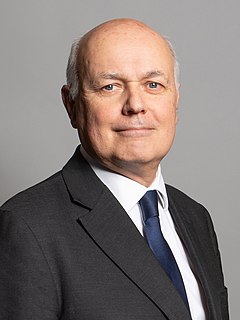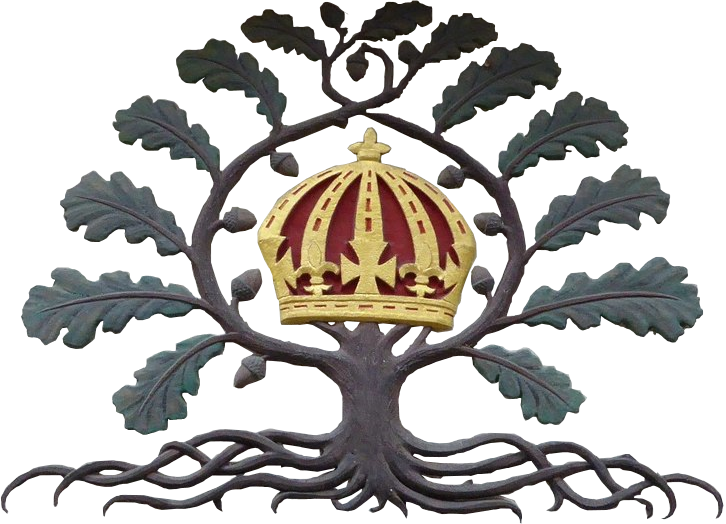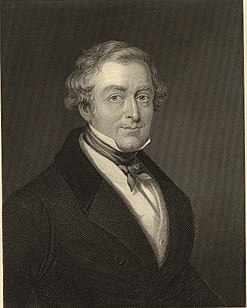Conservatism is an aesthetic, cultural, social, and political philosophy, which seeks to promote and to preserve traditional social institutions. The central tenets of conservatism may vary in relation to the traditional values or practices of the culture and civilization in which it appears. In Western culture, conservatives seek to preserve a range of institutions such as organized religion, parliamentary government, and property rights. Adherents of conservatism often oppose modernism and seek a return to traditional values.
The Conservative Party, officially the Conservative and Unionist Party, and also known colloquially as the Tories, Tory Party, or simply the Conservatives, is a political party in the United Kingdom. Ideologically, the Conservatives sit on the centre-right of the political spectrum. The Conservatives formed a fixed term coalition government with the Liberal Democrats from 2010–15. Following the 2015 election, the Conservatives formed a Government with a 12-seat majority. A snap general election in 2017 meant they held power without an overall majority until 2019, when they regained an overall majority in the House of Commons, with 364 Members of Parliament. The party also has 258 appointed members of the House of Lords, 9 members of the London Assembly, 31 members of the Scottish Parliament, 16 members of the Senedd and 7,445 local authority councillors.
One-nation conservatism, also known as one-nationism or Tory democracy, is a paternalistic form of British political conservatism. It advocates the preservation of established institutions and traditional principles within a political democracy, in combination with social and economic programmes designed to benefit the ordinary person. According to this political philosophy, society should be allowed to develop in an organic way, rather than being engineered. It argues that members of society have obligations towards each other and particularly emphasises paternalism, meaning that those who are privileged and wealthy pass on their benefits. It argues that this elite should work to reconcile the interests of all classes, including labour and management, rather than identifying the good of society solely with the interests of the business class.

Sir George Iain Duncan Smith, often referred to by his initials IDS, is a British politician who served as Leader of the Conservative Party and Leader of the Opposition from 2001 to 2003. He was Secretary of State for Work and Pensions from 2010 to 2016. He has been Member of Parliament (MP) for Chingford and Woodford Green, formerly Chingford, since 1992.

New Labour is a period in the history of the British Labour Party from the mid to late 1990s until 2010 under the leadership of Tony Blair and Gordon Brown. The name dates from a conference slogan first used by the party in 1994, later seen in a draft manifesto which was published in 1996 and titled New Labour, New Life for Britain. It was presented as the brand of a newly reformed party that had altered Clause IV and endorsed market economics. The branding was extensively used while the party was in government between 1997 and 2010. New Labour was influenced by the political thinking of Anthony Crosland and the leadership of Blair and Brown as well as Peter Mandelson and Alastair Campbell's media campaigning. The political philosophy of New Labour was influenced by the party's development of Anthony Giddens' Third Way which attempted to provide a synthesis between capitalism and socialism. Mark Bevir argues that another motivation for the creation of New Labour was as a response to the emergence of the New Right in the preceding decades. The party emphasised the importance of social justice, rather than equality, emphasising the need for equality of opportunity and believed in the use of markets to deliver economic efficiency and social justice.
The Conservative Democratic Alliance (CDA) was a political pressure group from the United Kingdom. The CDA referred to itself as the "authentic voice of conservatism". It closed in December 2008.
Social conservatism is a political philosophy and variety of conservatism which places emphasis on traditional power structures over social pluralism. Social conservatism in North America rose in the early 1800s as a reaction to the perceived anti-Christian and anti-constitutional aspects of slavery, as articulated by William Wilberforce and Abraham Lincoln. They also engaged with the economic insecurity of lower-class Protestant Americans, McCarthyism and other challenges to social institutions. Social conservatives often promoted the organisation and politicisation of social issues.

A Red Tory is an adherent of a centre-right or paternalistic-conservative political philosophy derived from the Tory tradition, most predominantly in Canada but also in the United Kingdom. This philosophy tends to favour communitarian social policies, while maintaining a degree of fiscal discipline and a respect of social and political order. It is contrasted with "Blue Tory" or "High Tory". Some Red Tories view themselves as small-c conservatives.
Compassionate conservatism is an American political philosophy that stresses using conservative techniques and concepts in order to improve the general welfare of society. The philosophy supports the implementation of policies designed to help the disadvantaged and alleviate poverty through the free market, envisaging a triangular relationship between government, charities and faith-based organizations. The term entered more mainstream parlance between 2001–2009, during the administration of US President George W. Bush. He used the term often to describe his personal views and embody some parts of his administration's agenda & policy approach.

The 2001 Conservative Party leadership election was held after the British Conservative Party failed to make inroads into the Labour government's lead in the 2001 general election. Party leader William Hague resigned, and a leadership contest was called under new rules Hague had introduced. Five candidates stepped forward: Michael Ancram, David Davis, Kenneth Clarke, Iain Duncan Smith and Michael Portillo.
The Maxim Institute is a research and public policy think tank based in Auckland, New Zealand. The Institute's work is oriented toward a conservative perspective on its issues of primary concern, which are now education policy, tax and welfare policy. Although initially identifiable as a social conservative organisation, its policy statements have emphasised fiscal restraint within tax and welfare policy since its former director, Bruce Logan, left in 2005.

The Conservative Party is the oldest political party in the United Kingdom and arguably the world. The current party was first organised in the 1830s and the name "Conservative" was officially adopted, but the party is still often referred to as the Tory party. The Tories had been a coalition that more often than not formed the government from 1760 until the Reform Act 1832. Modernising reformers said the traditionalistic party of "Throne, Altar and Cottage" was obsolete, but in the face of an expanding electorate 1830s–1860s it held its strength among royalists, devout Anglicans and landlords and their tenants.
Conservatism in the United States is a political and social philosophy which characteristically prioritizes American traditions, republicanism, and limited federal governmental power in relation to the states, referred to more simply as limited government and states' rights. It typically supports Christian values, moral universalism, American exceptionalism, and individualism. It is generally pro-capitalist and pro-business while opposing trade unions. It often advocates for a strong national defense, gun rights, free trade, and a defense of Western culture from perceived threats posed by communism, socialism, and moral relativism.
The Cornerstone Group is a High Tory or traditional conservative political organisation within the British Conservative Party. The Group espouses traditional values as exemplified by its motto: Faith, Flag, and Family. It comprises Members of Parliament with a traditionalist outlook and was founded in 2005. The Group's president is Edward Leigh and its chairman John Hayes. Many Conservative Party Members of Parliament and Peers belong to the Cornerstone Group, including several members of Her Majesty's Government.

The Centre for Social Justice (CSJ) is an independent centre-right think tank co-founded in 2004 by Iain Duncan Smith, Tim Montgomerie, Mark Florman and Philippa Stroud.
Mark MacGregor is a British Conservative Party politician and entrepreneur. He fought several parliamentary elections for the party, became chief executive of Conservative Central Office from 2002 to 2003 and then ran Steve Norris' campaign to become Mayor of London in 2004. He has run various businesses, including a communications company, Marketforce Communications Ltd, an events firm and a cloud technology company, Connect Support Services Ltd. He was appointed Deputy Director of Policy Exchange in early 2013

Timothy Montgomerie is a British political activist, blogger, and columnist. He is best known as the co-founder of the Centre for Social Justice and as creator of the ConservativeHome website, which he edited from 2005 until 2013, when he left to join The Times. He was formerly the newspaper's comment editor, but resigned in March 2014. On 17 February 2016, Montgomerie resigned his membership of the Conservative Party, citing the current leadership's stance on Europe, which has been supportive of EU membership. In 2019, he was briefly a special adviser to Prime Minister Boris Johnson, advising on social justice issues.
Green conservatism is a combination of conservatism with environmentalism. Environmental concern has been voiced by both conservative politicians and philosophers throughout the history of modern conservatism, with Edmund Burke, in his Reflections on the Revolution in France, quoted as saying: "the earth, the kind and equal mother of all ought not to be monopolised to foster the pride and luxury of any men".
Social conservatism in the United States is a political ideology focused on the preservation of traditional values and beliefs. It focuses on a concern with moral and social values which proponents of the ideology see as degraded in modern society by liberalism. In the United States, one of the largest forces of social conservatism is the Christian right.
Conservatism in the United Kingdom is related to its counterparts in other Western nations, but has a distinct tradition and has encompassed a wide range of theories over the decades. The Conservative Party, which forms the mainstream centre-right party in Britain, has developed many different internal factions and ideologies.





